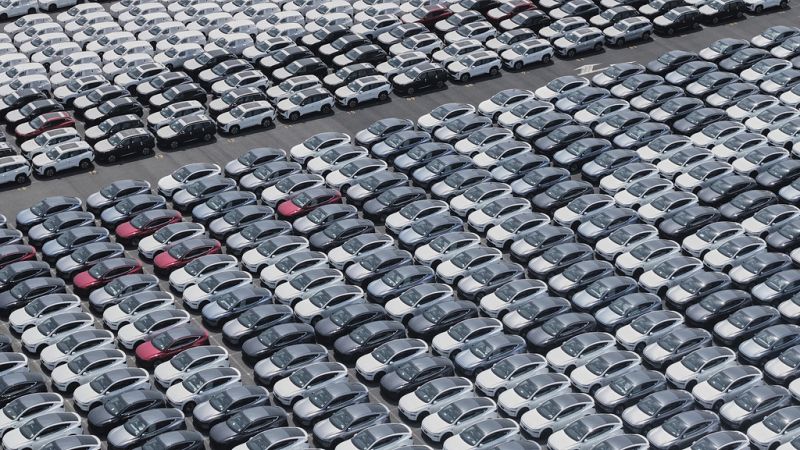
The European Commission presented on Thursday a new system for monitoring imports arriving in the EU based on customs data. It should be complemented by member states and EU industries’ data to identify import surges coming from foreign countries following US tariffs affecting global trade.
“Recent turbulence in the global trading system has increased the risk of harmful trade diversion - products diverted from high tariff markets could find their way to Europe,” EU trade commissioner Maroš Šefčovič said, adding: "With this new import surveillance tool we are boosting our capacity to protect our own interests and stop surges in imports diverted to our market."
On 7 April the Commission announced the creation of a task force to monitor variations in imports of products arriving in the EU since 1 January 2025.
The biggest fear concerns diversion of products coming from China. At the peak of trade confrontation between the US and China in April, Washington imposed tariffs of up to 145% on Chinese goods. However, the two economic giants reached a truce in May, lowering these duties on Chinese products to 30%.
According to the latest figures from Chinese customs, exports from China to the EU increased by 8.2% in April 2025 compared with April 2024. At the member state level, exports to Germany rose by 20.4% over the same period, while the Netherlands saw an increase of 5.6%, Italy 4.7%, and France 2.6%. In the meantime, Chinese exports to the US have fallen by 20% over the same period.
The data also showed a surge in Chinese exports to South-East Asian countries, with Thailand up 28% and Indonesia up 37%.
To defend itself from excessive trade diversion, the Commission can resort to safeguards, which enable the EU to limit temporarily imports of a product when they might cause market distortion. It can also impose anti-dumping duties if a foreign country exports a product at a lower price than the price on its domestic market.
Trade expert Simon Evenett, from the St Gallen Endowment for Prosperity Through Trade, in Switzerland, compiled data showing accelerating price falls between January and April 2025 for Chinese automotive and petroleum products, and prices starting falling over the same period for medicines and ships exported by China across the globe.







